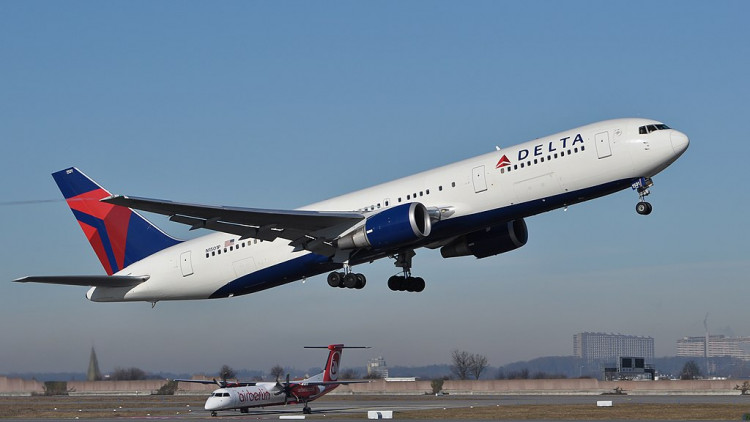In a dramatic escalation of its ongoing conflict with cybersecurity firm CrowdStrike, Delta Air Lines announced on Thursday that the recent technology outage, which led to the cancellation of approximately 7,000 flights, has resulted in a staggering $550 million hit to the airline. The financial blow includes a $380 million revenue loss, primarily due to refunding passengers and compensating them with cash and SkyMiles, according to Delta's latest securities filing.
The outage, which occurred on July 19 at the height of the summer travel season, brought Delta's operations to a grinding halt. The airline struggled for days to recover, leaving thousands of passengers stranded and frustrated. Delta, which has long prided itself on its reliability and premium service, now finds itself grappling with the fallout from what it describes as a "technology-driven outage" that not only crippled its operations but also damaged its reputation.
In addition to the revenue losses, Delta reported $170 million in expenses related to the operational recovery effort, which included the manual restart of thousands of computers that were taken offline by the incident. The carrier noted that its fuel bill was likely $50 million lower due to the flight cancellations.
Delta has made it clear that it holds CrowdStrike and Microsoft responsible for the chaos that ensued. Delta's CEO, Ed Bastian, did not mince words in the company's statement, declaring that "an operational disruption of this length and magnitude is unacceptable, and our customers and employees deserve better." Bastian emphasized that Delta's operational performance has since returned to its usual industry-leading standards, but the scars from the disruption remain.
The dispute between Delta and CrowdStrike has quickly turned ugly, with both sides exchanging sharp accusations. Delta has accused CrowdStrike of gross negligence, arguing that the cybersecurity firm's failure to address the issue promptly and effectively was the primary cause of the extended outage. David Boies, Delta's high-profile attorney, has been leading the airline's legal battle, demanding that CrowdStrike and Microsoft accept responsibility and compensate Delta for the severe damage inflicted on its business.
Boies' letter to CrowdStrike, sent on Thursday, laid out Delta's case in stark terms. "We appreciate CrowdStrike's 'apology to Delta,' but an apology alone in these circumstances is vastly inadequate," Boies wrote. He asserted that Delta's reliance on CrowdStrike and Microsoft for 60% of its mission-critical applications exacerbated the situation, leading to the prolonged disruption.
CrowdStrike, however, has pushed back against Delta's claims. In a statement, the company accused Delta of "pushing a misleading narrative," insisting that it had been in direct contact with Delta's chief information and security officer within hours of the incident and had offered support throughout the crisis. CrowdStrike's CEO, George Kurtz, reportedly reached out to Delta board member David DeWalt shortly after the outage began, with DeWalt praising the company's efforts on LinkedIn.
Microsoft has also weighed in, suggesting that Delta's outdated technology systems were partly to blame for the extended outage. The tech giant claimed that Delta had failed to modernize its IT infrastructure, leaving it more vulnerable to the kind of disruption that occurred.
As the blame game continues, Delta's legal team has been relentless in its pursuit of damages. Boies criticized CrowdStrike's response to the crisis, claiming that the company's initial offers of assistance were insufficient and that the firm later introduced another bug that further delayed Delta's recovery efforts.
The financial impact of the outage has been severe for Delta, which has seen its shares fall by 31% this year amid broader challenges in the airline industry. The $6 billion write-down of its cable television networks announced by Paramount Global this week, alongside Delta's own financial woes, underscores the difficulties facing traditional media and transportation sectors as they navigate the rapidly changing landscape.
Adding to Delta's troubles, the U.S. Department of Transportation (DOT) has launched an investigation into the airline's handling of the outage and its response to customer complaints. A class-action lawsuit has also been filed against Delta by passengers who allege that the airline refused or conditioned refunds during the crisis.





